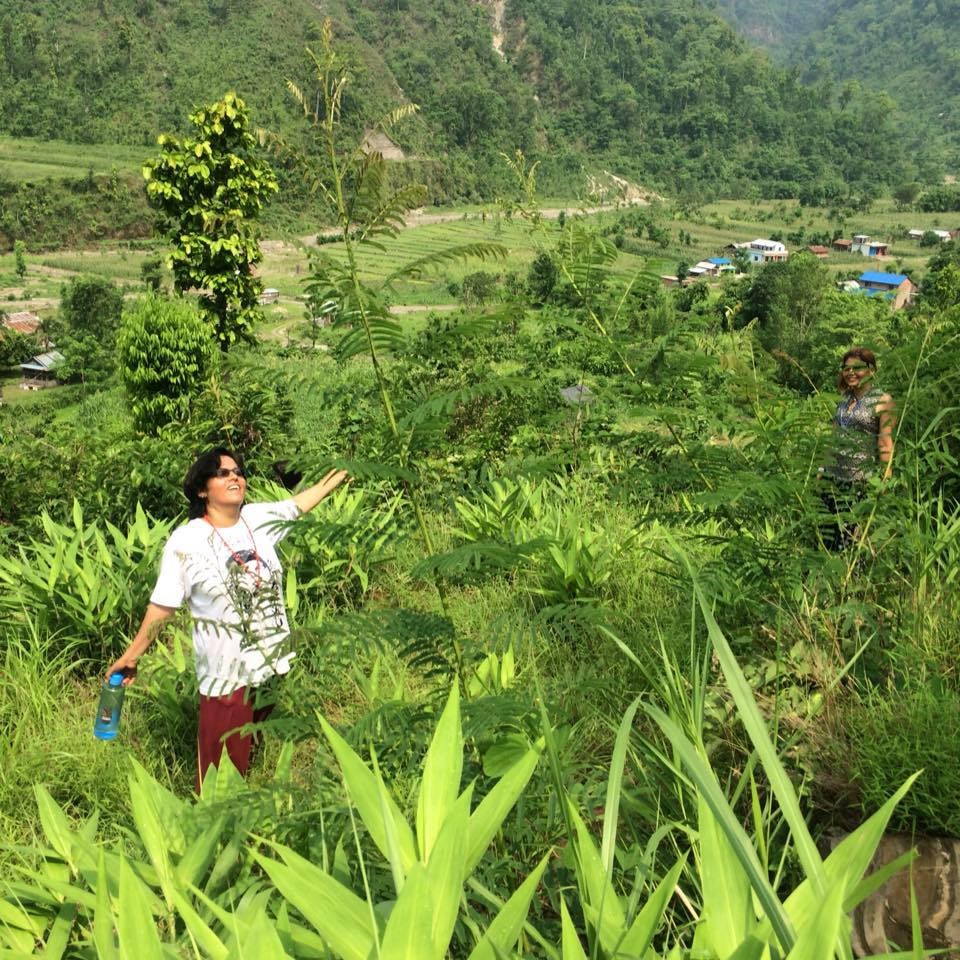Jiwanti Poudel, the Chairperson of Women Peasant Association (2015–), shares about her experiences leading women peasants and helping them enhance their economic and social status.

During my tenure in the organization, the establishment of a cooperative involving women peasants makes me very proud among the different things done to enhance and strengthen the organization.
Back in 2068 BS (2011 AD), a cooperative called Kalika organic cooperative was established in Gauriganga municipality o4, Kailali, Nepal under my leadership. This was inspired by a training on small farmers’ production promotion and marketing conducted by MTCP2. Currently, there are around 200 women members of the cooperative who were only housewives at that time. They were the women in the community doing basic household chores and in search of some kind of work to do for income generation. Initially, women were brought together for the matter of cleaning and maintaining the community temple. This lead to the formation of a women’s group. The cooperative then started from the collection of Rs 10 only from each woman, which grew to approximately 30 lakhs now (including the building). Most of the women members are now leading the community against violence on women issues. They are also involved in various agro-based cultivation such as cattle farming, banana farming, high-price rice production, etc. to enhance their economic status.
The cooperative is being supported by the local government, local leaders, and other organizations. The most inspiring part is that the cooperative how has its own building. The naturally available resources such as cow dung, urine, etc. are being used to produce different agro-based fertilizers. With these activities, women are empowered as entrepreneurs and leaders. They are also strongly practicing the attainment of the “Zero Budget farming” on their own. This entrails reduction in the cost of production.
However, women peasants require more support and encouragement from different sectors to make impact on national level. For now, I am not physically available at the cooperative but I get updates on the different progress of the women back there. Their positivity towards doing new things on their own gives me more energy to work even harder for the rights of women peasants.

Now, I have an organic vegetable farm run with a small group of neighboring household women and young girls at Chovarnear and Kirtipur, Kathmandu which was established in 2073 with the help of MTCP2. It is my occupational engagement along with socio-politics and I have been earning my expenses from this farm. I also participated in different programs organized by NIA Nepal in and out of the country. Now, we are earning Rs.400,000 annualy selling organic vegetables and crops such as potatoes. We grow two croppings of potatoes and vegetables in a year and people come to the farm to buy potatoes and vegetables so we do not have to pay for any transport costs. I also participated in vegetable farming training, organized by MTCP2 where I gained knowledge about organic vegetable farming practices including the participatory certification system (PCS).

Comments are closed